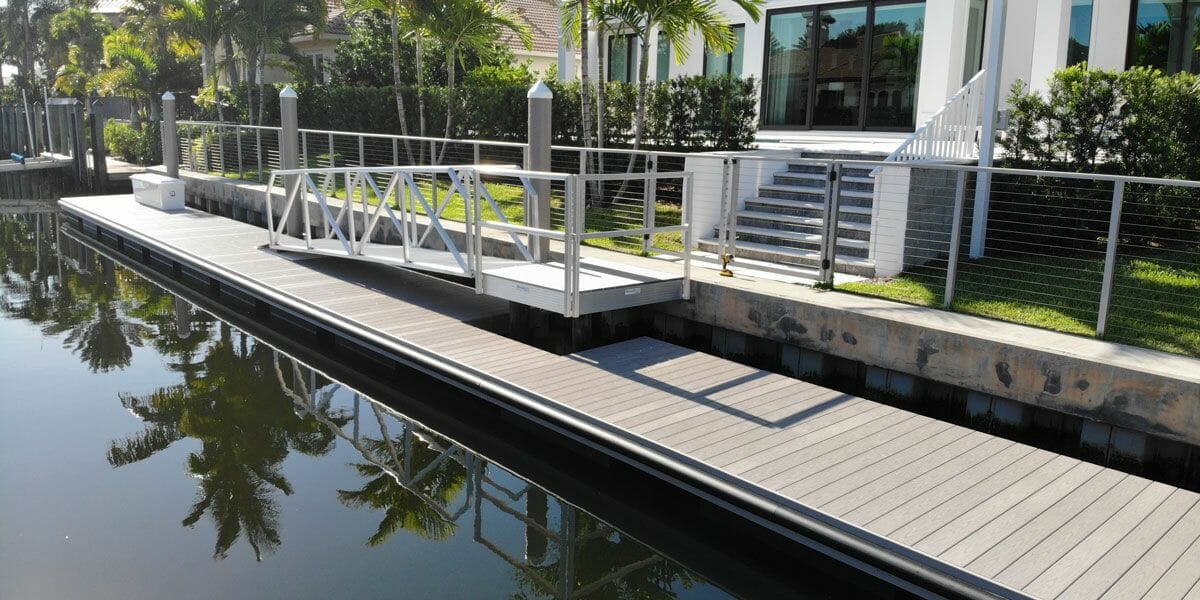
3 Types of Docks Perfect for Recreational Use
Your waterfront property is absolutely stunning, and you bought it for one key reason – to enjoy the water. That’s best done with a recreational boat dock and having a private dock offers you a number of advantages you just can’t get with public docks. You get convenient water access at any time without the high storage and slip fees. It also means a chance to better secure your watercraft. More than that, it can actually increase your property value. Convinced? Owning your own dock is incredibly helpful, but it comes with one key choice – choosing among the best rated boat docks for recreational use. What are those top options? Here are the three main choices you’re likely to see available.
- Piling Docks: Recreational boating docks made in this manner have large wooden beams – called pilings – inserted deep underground into the water. The dock material then connects to those pilings, usually with an attachment like hoops or rollers. That allows the dock itself to rise and fall as the water levels change while it holds its position in the water. These kinds of docks can handle incredibly strong currents. They can, however, be fairly expensive at the outset as well as costly to maintain. Construction with this kind of dock must be well planned, as success here demands a higher level of structural integrity. The pilings must also be protected from destructive organisms.
- Pipe Docks: This dock style works a bit like a piling dock. Usually, they have an aluminum frame, and the docking material itself tends to be removable. While they’re not as stable as piling docks, they do cost quite a bit less, and they’re easy to construct. These can only be used in shallow water, though. In fact, the water around this dock should be no more than eight feet. The surface of this type of dock doesn’t make significant contact with the land or the water, so it’s ideal in areas where the ecosystem may be harmed by the dock itself. Unfortunately, it’s easily submerged because it is stationary. It may have to be relocated if seasonal variations cause water levels to rise or fall significantly. Moreover, rough currents can damage the piping and surface, so ongoing maintenance is a must.
- Floating Docks: These are easily the most practical choice available. There are few permitting requirements because they work well in any type of water. They’re perfect in deep water locations where the pilings and cribs and other docks required are too expensive or difficult to install, and they work well in challenging bed conditions. Whether the shoreline where you live is rocky, sand, or includes wetlands, this option is ideal because they don’t damage the space around them. They won’t even hurt vulnerable ecosystems. They rise and fall with the water levels, too, so if you decide to include electricity on your dock, the systems won’t ever be submerged, even during severe weather. Maybe the best part of this kind of dock, though, is that when it’s not in use, it can be stored safely away, then put back into place on an as-needed basis.
Floating docks are the one clear winner, but before you ask for an estimate, don’t forget to do a bit of thinking and planning. What will be the primary use for your dock? Launching watercraft? Sunbathing? An outdoor workspace? Understanding that will help you better design the dock to meet your needs. You may also want to consider whether you’ll want to add accessories to your dock like storage, benches, or even a swim ladder to make it easier to get in and out of the water.
Once you’ve made your plan, give us a call at 954-785-7557. We’ll discuss any other key factors you may want to consider before we design your perfect dock!
AccuDock is a global leader in the design and manufacturing of Floating Docks
CALL 954.785.7557 OR EMAIL [email protected] FOR MORE INFORMATION









